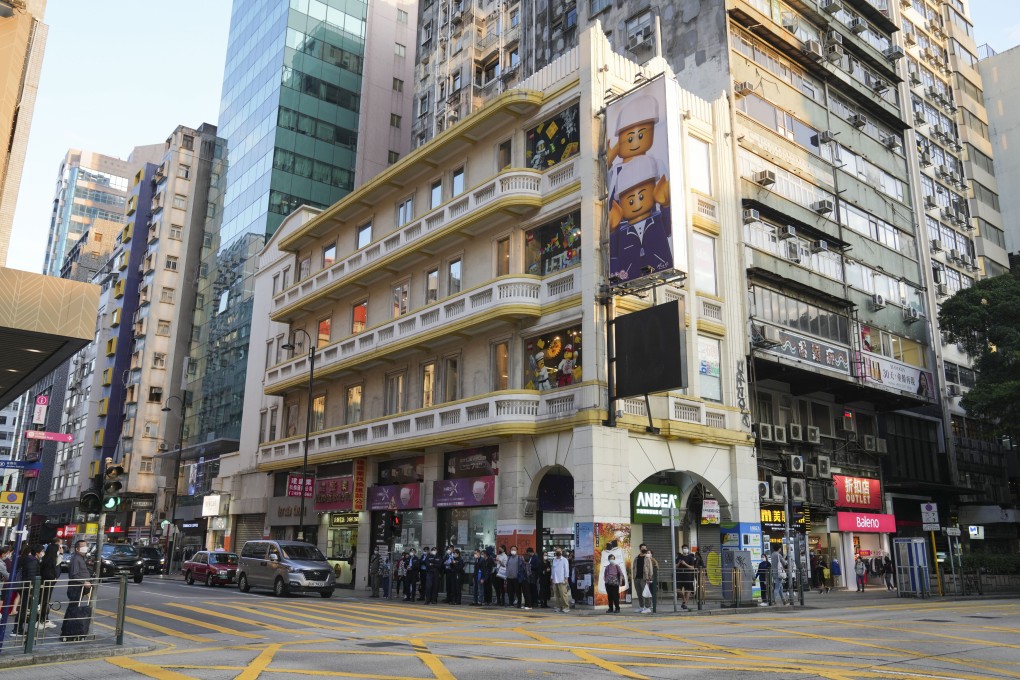Fate of World War II spy hub hangs in balance as Hong Kong authorities to review building’s heritage status
- Antiquities Advisory Board to decide on Thursday whether veranda-style shophouse at No 190 Nathan Road should be reclassified as Grade 1 building
- Building occupied by Japanese army during second world war, with owner’s sons executed after passing intelligence on occupying forces to British army

Hong Kong’s conservation authorities will consider upgrading the heritage status of a commercial block in Tsim Sha Tsui to save it from being demolished, with the building previously serving as a base to spy on the Japanese army during the second world war.
Members of the Antiquities Advisory Board will decide on Thursday whether the veranda-style shophouse at No 190 Nathan Road should be reclassified as a Grade 1 building from Grade 3, following a proposal from the Antiquities and Monuments Office on the back of concerns from advocacy groups.
Conservationists have said the four-storey building is one of the three remaining pre-war sites featuring corridor-style balconies located on the corner of a block.
Paul Chan Chi-yuen, an advocate for heritage conservation and co-founder of Walk in Hong Kong, on Wednesday said: “We hope the Antiquities Advisory Board members could endorse the listing of the block as a Grade 1 historic building.
“It will be an important indication of the acknowledgement of the block’s historical value and the owner could also reconsider his demolition plan. A block with great heritage value is also a big asset to the owner.”
Walk in Hong Kong and other conservation groups have also argued that the building has significant historical interest, citing its past use in intelligence operations carried out against Japan during the war.
According to the groups’ research, the site was used by the Japanese army in the early 1940s following the invasion of the city, with the building’s owners forced to serve the occupying soldiers.

